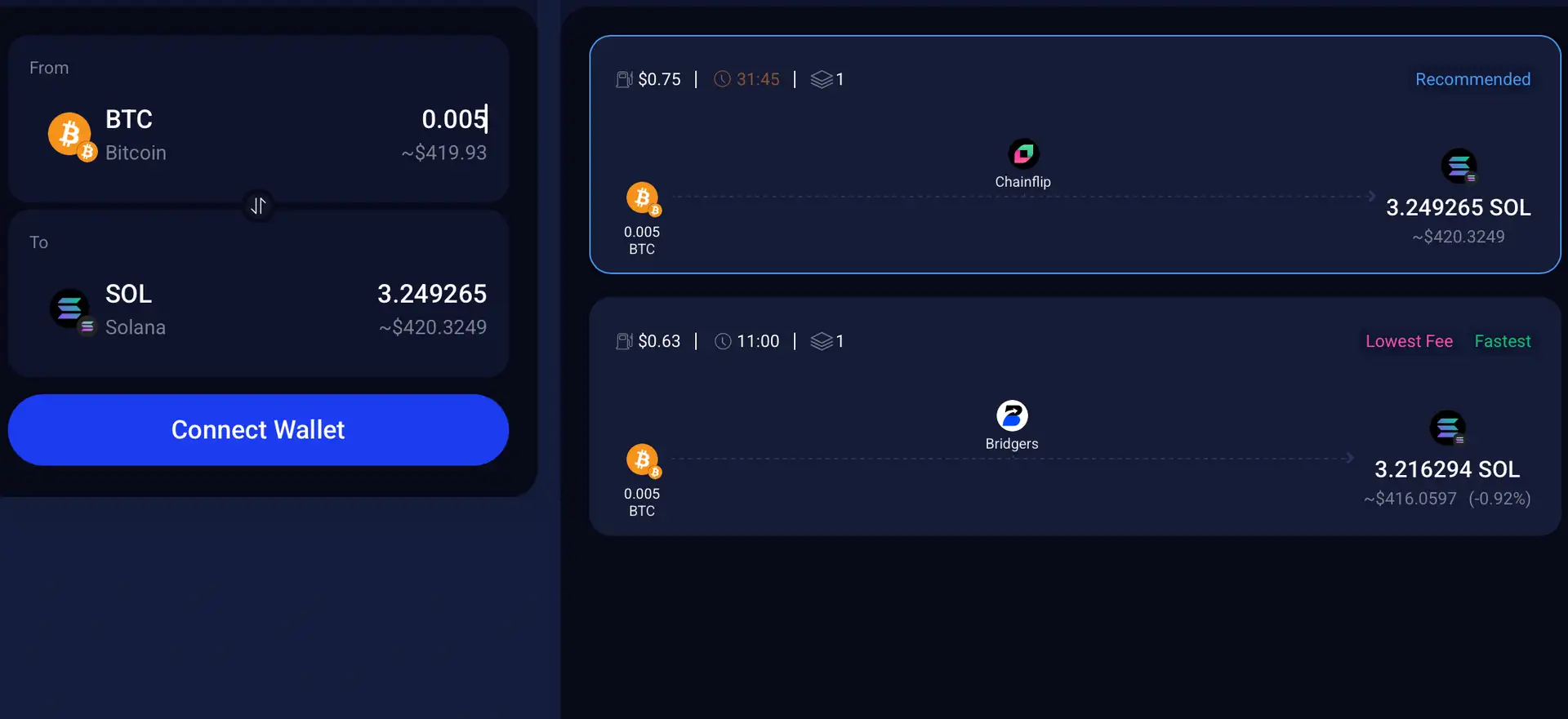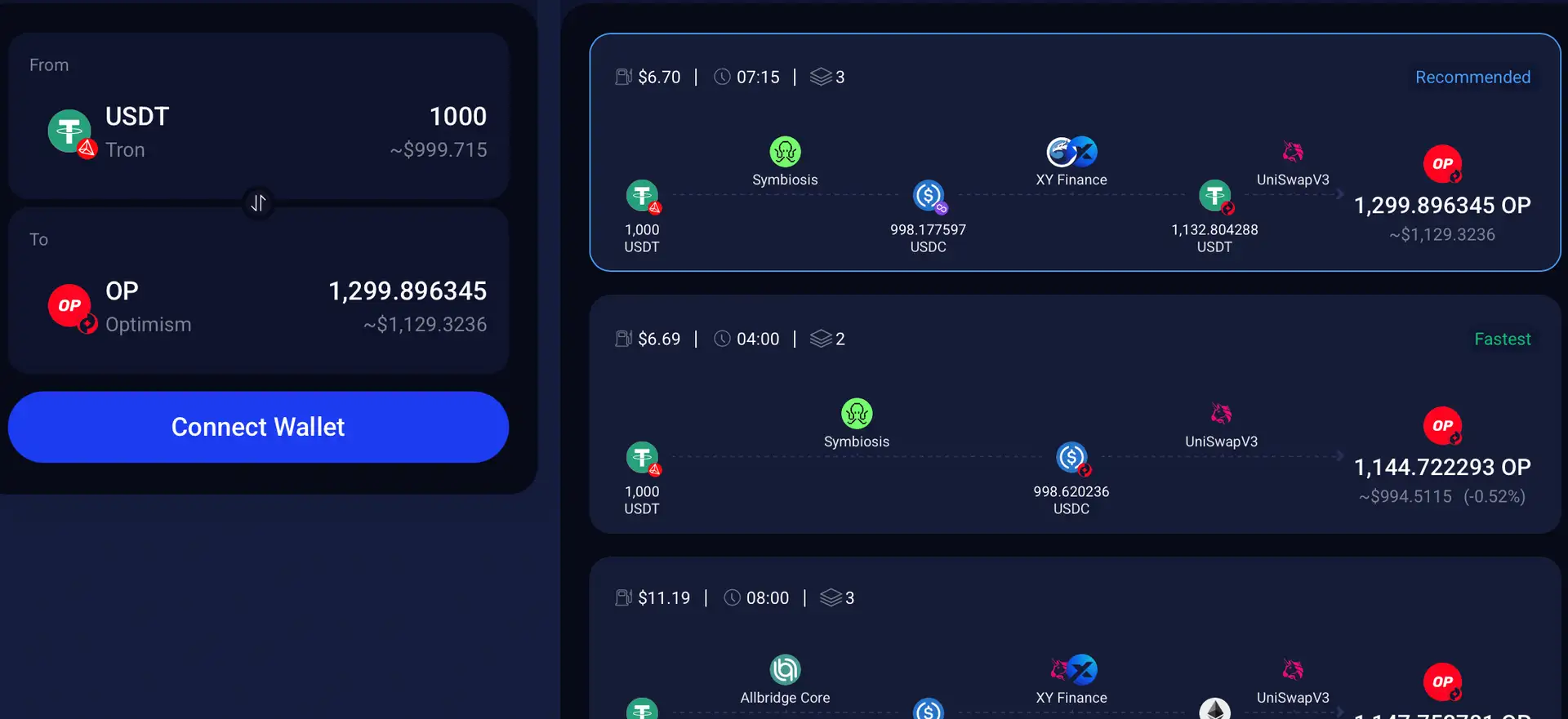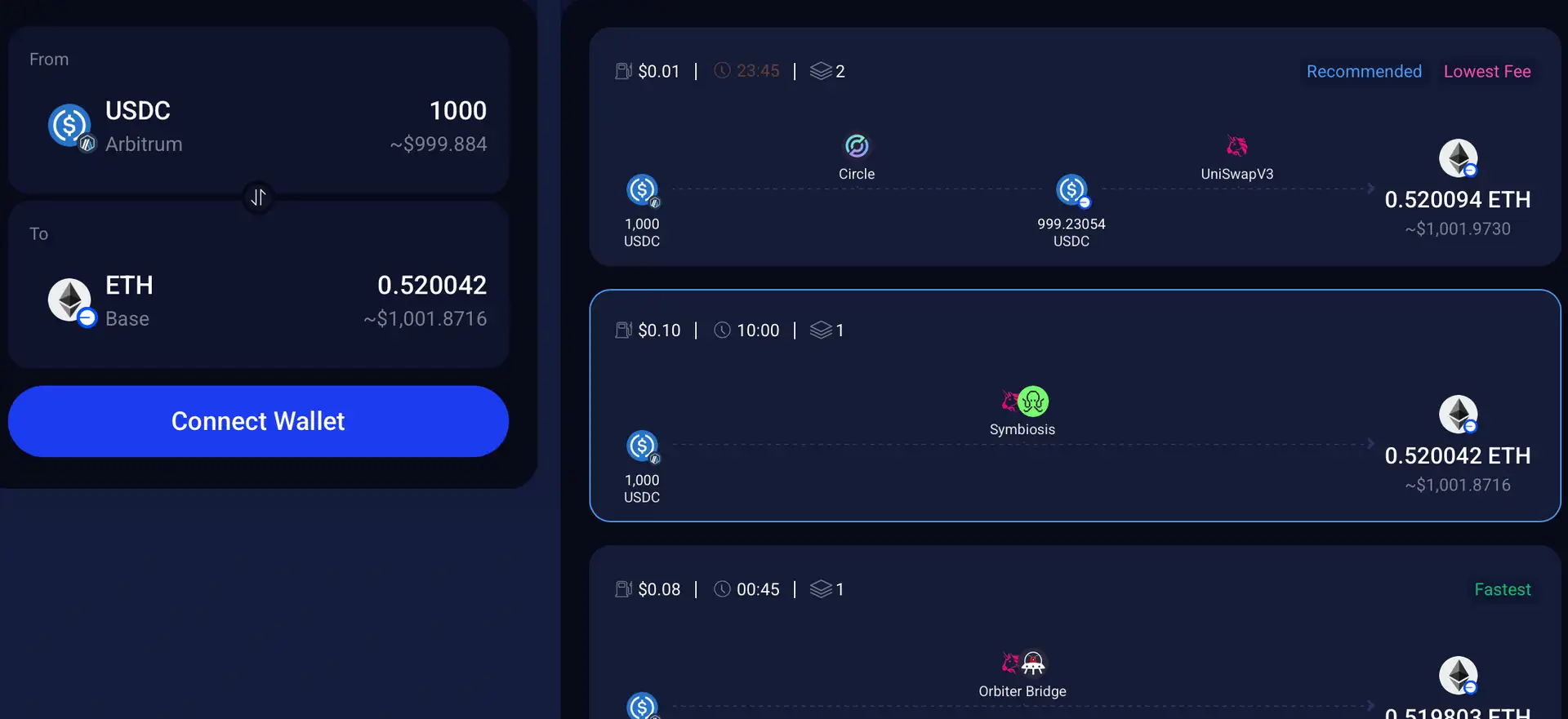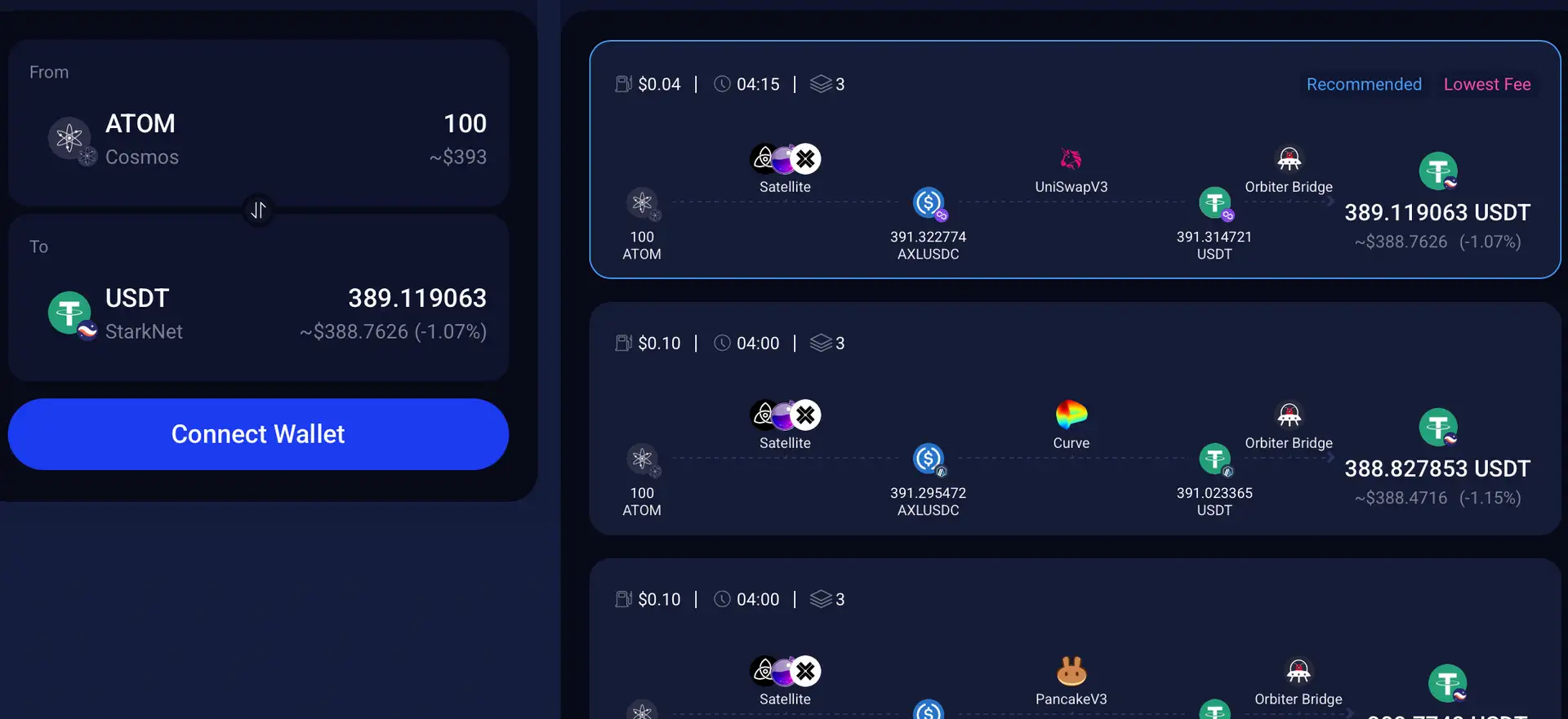About Rango exchange
Rango Exchange is a leading-edge cross-chain and on-chain aggregator protocol designed to facilitate seamless crypto swaps across multiple blockchains. Its mission is to break down the technical barriers between ecosystems and deliver a universal, secure, and efficient experience for users transacting on different chains. By integrating over 70 blockchains, 120+ DEXs and bridge protocols, and more than 20 wallets, Rango Exchange provides a comprehensive platform for any-to-any token swaps.
Unlike traditional aggregators that are often limited to a single chain or a narrow selection of protocols, Rango brings together DEXs, bridges, and liquidity sources across a broad spectrum of blockchain ecosystems including EVM chains, Cosmos, Solana, UTXO chains, and more. With a strong focus on user-centric design, top-notch security practices, and smart routing, Rango empowers both retail users and dApps to perform complex transactions without the need for technical expertise or third-party custody.
Rango Exchange has evolved into one of the most robust and advanced cross-chain aggregators in the DeFi space. Built as a universal solution for seamless token swaps, the platform operates on the principle of smart routing — analyzing thousands of real-time combinations across 70+ chains to provide the most optimal swap route for users. The platform’s value proposition lies in its chain-agnostic design, allowing users to move assets between different chains like Ethereum, Bitcoin, Solana, Cosmos, and more — with minimal friction.
At the heart of Rango is a routing engine that intelligently connects bridges and DEXs. For example, if a user wants to convert SHIB on Ethereum to DOGGY on BSC, Rango would compute a multi-hop path like SHIB → ETH → Wrapped ETH → DOGGY, integrating protocols like 1inch and Binance Bridge. All of this is done automatically with just a few clicks. Furthermore, the system adapts to market volatility by retrying and waiting for slow APIs to ensure the best route is found, even under challenging conditions.
Security is a key pillar for Rango. All integrated smart contracts undergo rigorous internal and external audits. The app architecture incorporates real-time protocol health monitoring, circuit breakers, and rate limiting to ensure users never interact with compromised services. In case of swap issues, users can use transaction IDs to get live support on platforms like Telegram or Discord.
Compared to competitors such as 1inch, ParaSwap, OpenOcean, and Rubic Exchange, Rango provides a broader chain coverage. While these platforms focus primarily on EVM ecosystems or limited bridge options, Rango sets itself apart by supporting UTXO chains, ZK-rollups, Cosmos, Solana, and more — making it the most expansive aggregator currently available.
The platform also provides a wide array of integration tools like a JavaScript SDK, a fully customizable no-code widget, and powerful APIs to allow dApps, wallets, and Web3 protocols to embed Rango’s routing capabilities. Projects like Trust Wallet, Exodus, Binance Web3 Wallet, Mean Finance, and many others already leverage Rango under the hood.
Rango Exchange provides numerous benefits and features that make it a standout project in the cross-chain aggregation landscape:
- All-in-One Aggregation: Supports over 70+ blockchains, 120+ DEXs and bridges, and 25+ wallets with seamless UI.
- Smart Routing System: Dynamically finds the best price and path for every transaction using real-time data from hundreds of sources.
- Multi-Ecosystem Coverage: Aggregates across EVM, Cosmos, Solana, Starknet, Tron, Bitcoin, and UTXO chains.
- Developer-Friendly Tools: Includes JavaScript SDK, API, and Widget for easy dApp and protocol integration.
- Security First: Two rounds of audits, 150+ smart contracts, SSL encryption, DDoS protection, and dynamic protocol disabling.
- Superior UX: Non-custodial interface with no KYC requirements, supporting wallets like MetaMask, Binance Wallet, XDefi, and Keplr.
Getting started with Rango Exchange is simple and efficient for both retail users and developers:
- Visit the App: Go to Rango Exchange and click on “Launch App”.
- Connect Your Wallet: Choose from popular wallets such as MetaMask, Trust Wallet, Terra Station, XDefi, and more. Make sure your wallet is funded and supports the networks you intend to use.
- Select Tokens: Choose the token you want to swap from and to. Rango supports token naming in “X.Y” format — for example, ETH.ETH for native Ethereum or BSC.ETH for wrapped ETH on Binance Smart Chain.
- Review Routing Path: Rango will compute the most efficient path using a combination of DEXs and bridges. You’ll see the estimated output, fees, and intermediate steps.
- Approve & Confirm: Approve the token (if needed) and confirm the transaction. You can track the progress and refer to the unique transaction ID if support is needed.
- Developer Integration: For dApp developers, use the SDK & API Docs or try the no-code Widget Integration.
The main vision behind Rango Exchange is to create a unified platform that addresses the growing complexity of DeFi and cross-chain ecosystems. With the number of blockchains, tokens, and decentralized exchanges expanding rapidly, Rango offers an all-in-one solution that makes navigating this fragmented space easier for users and developers alike.
Rango draws inspiration from the need for a more connected and integrated decentralized finance world. As DeFi grows, users often face high fees, liquidity fragmentation, and limited token availability when attempting to move assets across different networks. Rango addresses these challenges by offering cross-chain interoperability through its smart routing technology. This enables users to easily swap tokens between chains while optimizing for the best prices, lowest fees, and most efficient paths.
The platform also takes a security-first approach, having completed multiple security audits and continuously working on improving its infrastructure. Rango’s decentralized nature allows users to execute trades without relying on centralized entities, ensuring a trustless environment for asset management.
Rango Exchange continues to expand its supported blockchains, DEXs, and bridges, with over 60 blockchains and over 80 DEXes and bridges already integrated. As part of its roadmap, Rango plans to add even more blockchain networks, enhance its user interface, and improve support for developers through improving its smart contract, APIs and SDKs. Rango TGE is also on way .These tools will help dApps and other platforms incorporate cross-chain functionality more easily.
The details of the founders and core team behind Rango Exchange are not disclosed on the website. However, the project has strong backing from prominent investors, including Binance Labs, Nomad, Foresight, Thorchain, and NineRealms. This level of support from key players in the DeFi space adds to Rango's credibility and showcases the project’s potential to become a leading cross-chain platform. Rango's partnerships with major blockchain networks, such as Arbitrum, Polygon, and BNB Chain, further highlight the platform's ability to integrate with a wide range of DeFi ecosystems, ensuring a broad user base and extensive liquidity options for cross-chain trades. Rango is trusted and deployed by giant wallets like Trust, Binance Web3, Edge, Enkrypt and protocols like Orbs liquidity hub.
Rango is live from August 2021, constantly operating and releasing updates. Rango has 0 history of exploits and pretty robust security-wise. Rango developing team support developers and businesses through its customizable API and SDK documentation. This allows developers to integrate Rango’s cross-chain capabilities into their platforms, enabling them to explore and test the system without requiring extensive development work. The API facilitates cross-chain swaps, making it easier for dApps to support multi-chain transactions directly within their applications.
Rango exchange Reviews by Real Users
Rango exchange FAQ
Yes, Rango Exchange is one of the few platforms capable of executing complex swaps between fundamentally different blockchain architectures, including UTXO-based chains like Bitcoin and Cosmos-based chains such as Osmosis or Akash. It accomplishes this by leveraging its chain-agnostic routing engine, which orchestrates multiple swap and bridge steps — for instance, converting BTC to a wrapped asset, then bridging that asset to a Cosmos ecosystem token through verified bridges. Users simply connect a supported Bitcoin wallet and a Cosmos wallet and let Rango handle the logic and steps in the background.
Rango uses a real-time smart routing engine that continuously scans price, liquidity, bridge health, and success rates across over 120+ DEXs and bridges. During volatile or high traffic times, Rango’s engine retries failed or slow API responses and prioritizes paths based on execution speed, slippage, gas costs, and user safety. This ensures the user always gets the most optimal outcome. All route computations are shown transparently in the interface for review before finalizing a swap.
Absolutely. Rango Exchange supports multi-wallet and multi-network interactions. You can connect wallets like MetaMask, Terra Station, Keplr, and more simultaneously, each supporting a different chain. For example, you can initiate a swap from a token on the Ethereum network held in MetaMask to a Cosmos token stored in Keplr. Rango handles the transaction routing and guides you through each step. Start connecting your wallets on Rango Exchange.
Rango incorporates live health monitoring and a fallback mechanism. If a bridge is flagged as risky, under maintenance, or facing downtime, the platform dynamically removes it from the route options. If a bridge fails mid-swap, your funds remain safe in your wallet, as Rango never holds custody. You can retrieve incomplete transaction details using the swap ID and reach support on Telegram or Discord for immediate resolution.
Yes, Rango Exchange offers an ecosystem of developer tools that includes a JavaScript SDK, an API suite, and a no-code widget for fast integration of cross-chain functionality into dApps or wallets. By using Rango’s infrastructure, developers can instantly access 70+ supported chains, enabling any-to-any token swaps without building native integrations themselves. Explore these tools on the official documentation page.
You Might Also Like













